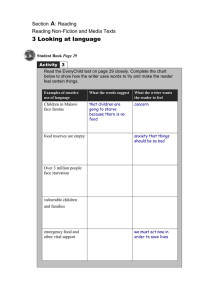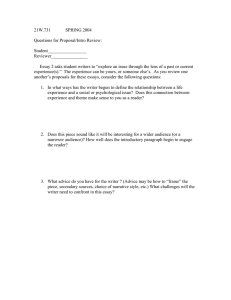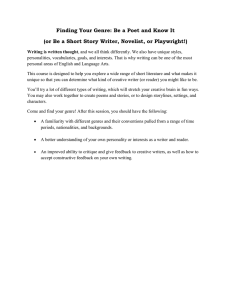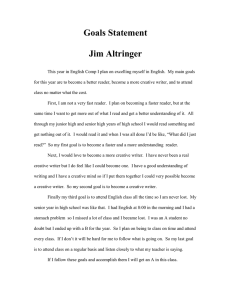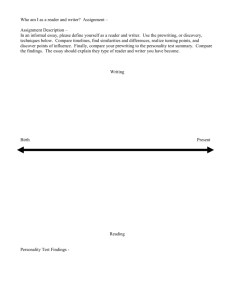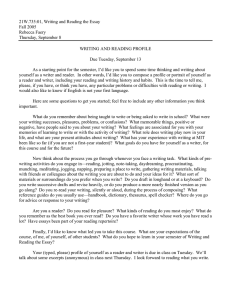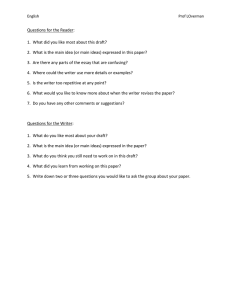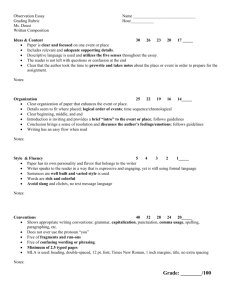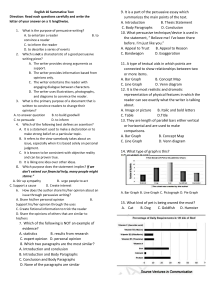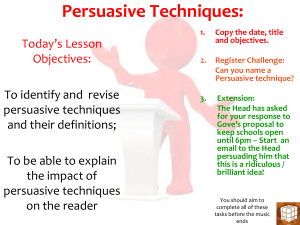1. Purpose.doc
advertisement
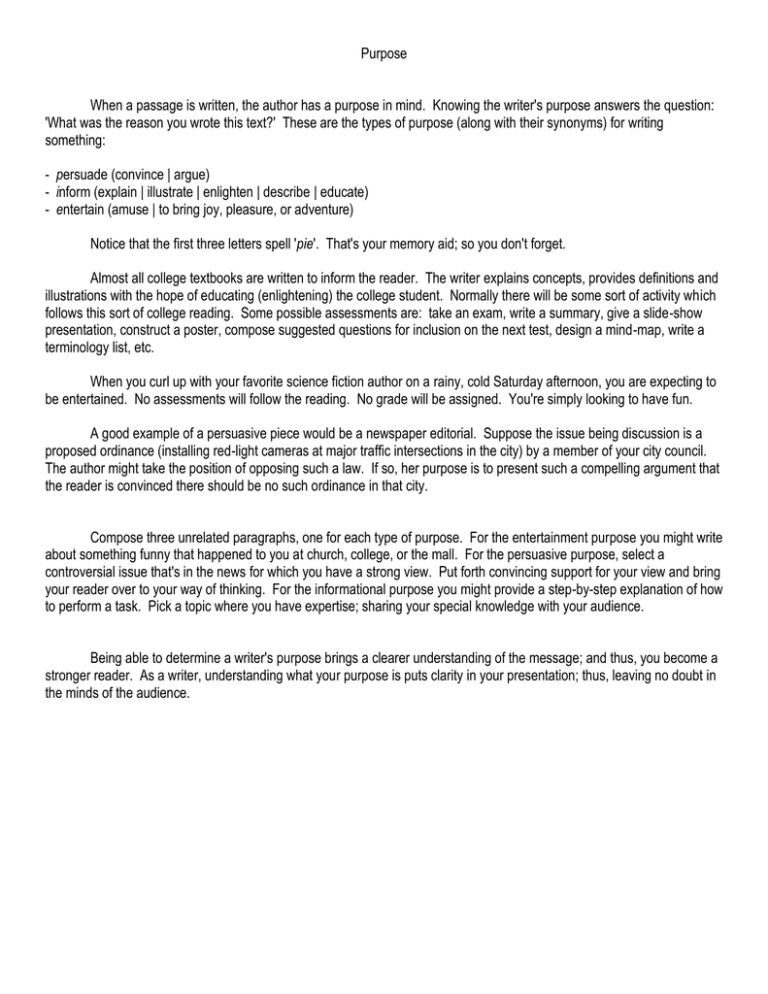
Purpose When a passage is written, the author has a purpose in mind. Knowing the writer's purpose answers the question: 'What was the reason you wrote this text?' These are the types of purpose (along with their synonyms) for writing something: - persuade (convince | argue) - inform (explain | illustrate | enlighten | describe | educate) - entertain (amuse | to bring joy, pleasure, or adventure) Notice that the first three letters spell 'pie'. That's your memory aid; so you don't forget. Almost all college textbooks are written to inform the reader. The writer explains concepts, provides definitions and illustrations with the hope of educating (enlightening) the college student. Normally there will be some sort of activity which follows this sort of college reading. Some possible assessments are: take an exam, write a summary, give a slide-show presentation, construct a poster, compose suggested questions for inclusion on the next test, design a mind-map, write a terminology list, etc. When you curl up with your favorite science fiction author on a rainy, cold Saturday afternoon, you are expecting to be entertained. No assessments will follow the reading. No grade will be assigned. You're simply looking to have fun. A good example of a persuasive piece would be a newspaper editorial. Suppose the issue being discussion is a proposed ordinance (installing red-light cameras at major traffic intersections in the city) by a member of your city council. The author might take the position of opposing such a law. If so, her purpose is to present such a compelling argument that the reader is convinced there should be no such ordinance in that city. Compose three unrelated paragraphs, one for each type of purpose. For the entertainment purpose you might write about something funny that happened to you at church, college, or the mall. For the persuasive purpose, select a controversial issue that's in the news for which you have a strong view. Put forth convincing support for your view and bring your reader over to your way of thinking. For the informational purpose you might provide a step-by-step explanation of how to perform a task. Pick a topic where you have expertise; sharing your special knowledge with your audience. Being able to determine a writer's purpose brings a clearer understanding of the message; and thus, you become a stronger reader. As a writer, understanding what your purpose is puts clarity in your presentation; thus, leaving no doubt in the minds of the audience.
